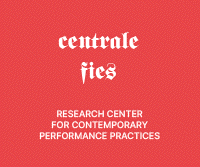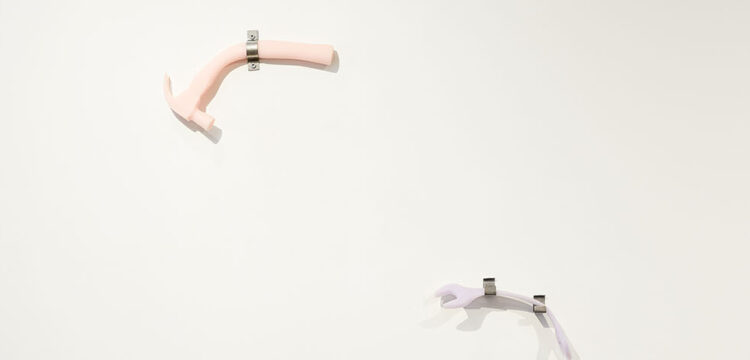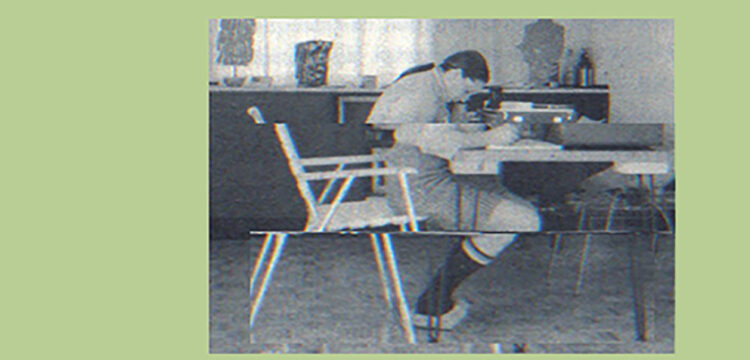Confronting Patriarchy
Inside of us, our families, our histories: a conversation with Ruth Rosenthal of Winter Family
WINTER FAMILY / Patriarchy, living in eternal lockdown is a sound installation version of a performance by and with Ruth Rosenthal, Xavier Klaine and Saralei Klaine with a new live Italian translation from the original French text by Fiorenza Menni, Andrea Mochi Sismondi and Marco Mochi Sismondi.
In anticipation of the performance on October 25th at Atelier Sì in Bologna—where Winter Family is currently having a residency (Artists in ResidenSì)—I had the chance to speak with Ruth Rosenthal about the work. I had the chance to speak with Ruth Rosenthal about the work. Winter Family uses music and text to build experiences that confront some of the most difficult themes and events our society faces. The music is intense, wavering between a dirge-like droning and a Patti Smith concert, the result is spiritual and reflective. There is great pleasure in listening to the music, but the texts to the songs give way to an entirely different layer, discussions of politics and struggles, of real conversations between Ruth and Xavier and their daughter Saralei about things from the Palestinian-Israeli conflict to immediate family issues. In this work Patriarchy, living in eternal lockdown the text is based on the discussions and tensions of life during lockdown and the roles of men and women within a family structure. It is a work in three parts: the first focusing on actual words spoken by Xavier during the lockdown; the second part Ruth’s poetic response to this violent and patriarchal language, invoking a kind of primordial and futuristic feminism; the third part, performed by Saralei, contains a list of women killed after being accused of being witches as well as women killed by feminicide. None of these three sections is simple or easy to confront but the aesthetic aspect of the work allows the public to step into the discussion for themselves and think about their own lives. These are histories each of us carries and this work makes space to interrogate this heaviness, this burden that is the patriarchy.
Allison Grimaldi Donahue: Before we get into the content of the performance, Patriarchy, living in eternal lockdown, I would love to hear more about how this text came about and how it was made. It is very raw and hard, how much of this text comes from real life? I mean, what exactly is this text?
Ruth Rosenthal: This text is coming from real life, at the beginning of the process, we tried to record our daily life, it didn’t really work out and Xavier thought I (Ruth) gave up the idea but, actually, I continued to note down (in the phone) some sentences he said. I took note of these phrases over almost two years, in the end we selected and edited the most “juicy” ones to a very condensed forty minutes.
What was the collaborative process like? Was it a different experience than with your previous work?—I’m thinking because of the internal tension as opposed to the tension one might experience in your other work, which is also political, but not dealing so much with the domestic space.
On one hand we are very much used to working together with both the joyful and problematic sides of it. However, our life and work have always been mixed and when dealing with our own lives it becomes quite schizophrenic. During rehearsals we often didn’t know where the work ends and real life starts. We tried to make a physical code (a movement with hands) but it didn’t work. Luckily, at a certain point the show was built up and became a written partition and we no longer hear it as our private lives.
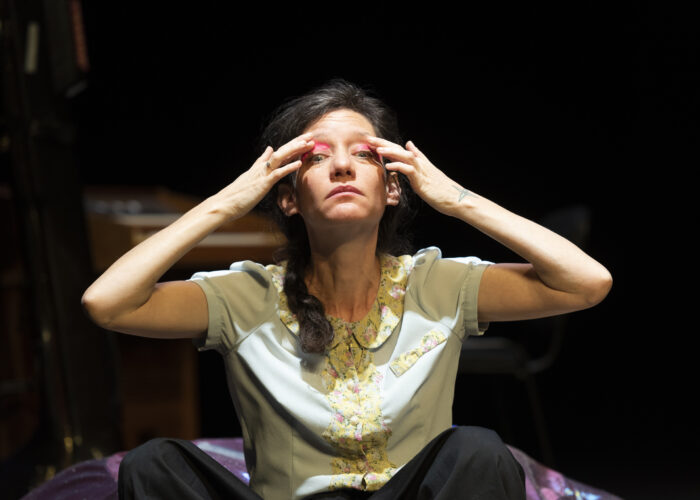
I think I am also asking if it was turbulent for you as a couple, as a family to elaborate so profoundly on this aspect of life and culture. Can you tell us more about this “physical code” you tried to institute and why it didn’t work?
It wasn’t much of a thing, it actually became quite funny, we would fight about directing questions and then Xavier would say something that I would consider putting in the text of the show. It drove us a little bit crazy, but it was funny too. The code was making an X movement with our hands but when you try to do it in the middle of an argument that could be possibly part of the show it can’t work.
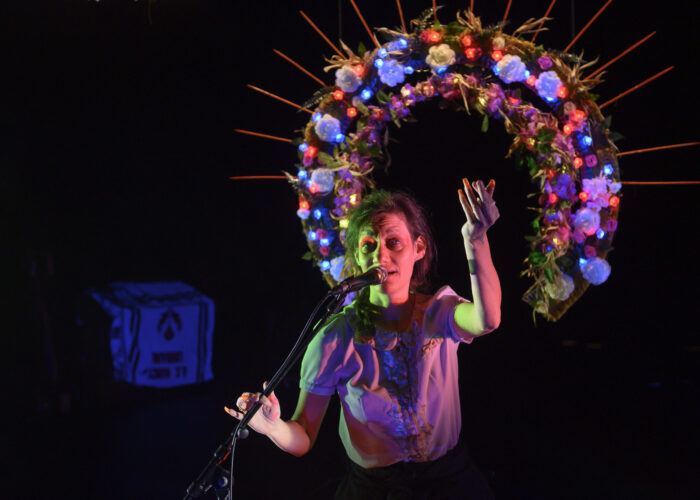
This text is quite painful and stressful to read. How do you feel this works with the audience, as a performance, with music, and so forth? What is the experience about for you as the creators?
The reactions are various, a lot of people laugh at the beginning (and then less and less). Men often go out of the show saying to their partners “you see there are worse men than me.” Most women however, tell us they completely understand what we are talking about. A lot of people think about themselves, trying to compare their lives, or their parents’ lives, and so on.
The listening of the first part is quite voyeuristic which means it is also easy, we are used to it in our modern society, and it takes time to pass from this kind of listening to a more complex, poetic kind of attention, that interests us for the audience to experience. For us it is also part of a getaway from the patriarchal world, the way we look at and listen to things.
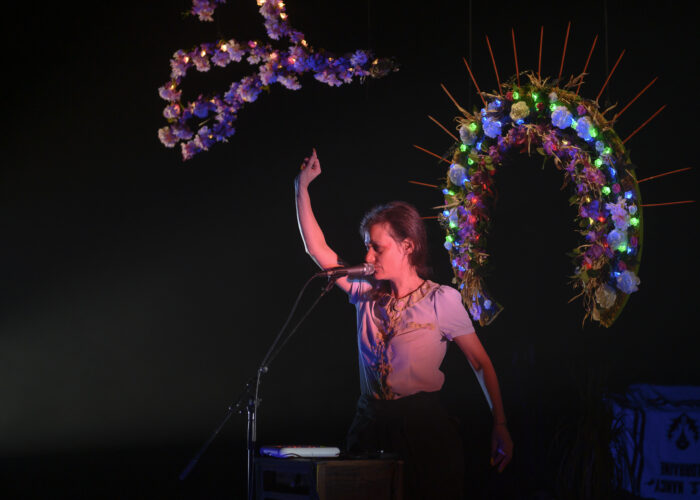
Can something productive come out of such an experience with raw patriarchy, is there a point with continuing the dialogue after something like this? I think of the prospect and possibility here of refusal, refusal to interact and the rejections of any idea that the woman should educate or better the man.
Our work doesn’t search for solutions, we like to bring situations on stage and try to bring it in the most humanistic, simple, and direct way. In the second and third parts of the show we bring other points of view on the problem, which can bring about a solution, we do not decide for our audience but rather like to trust our public to find their way to questions and eventually find solutions in their own lives
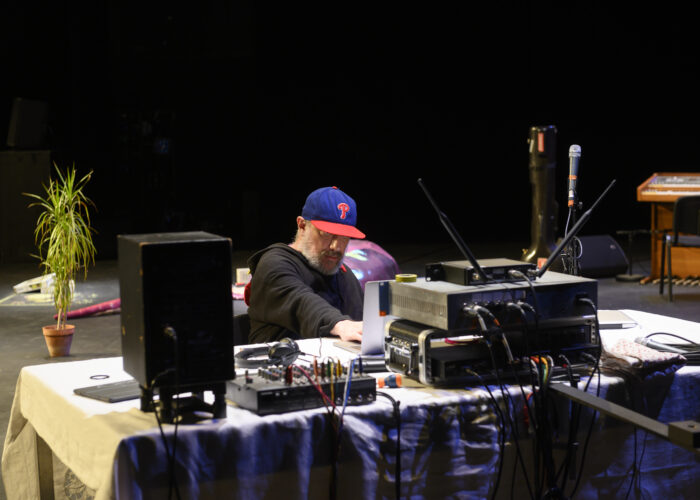
I’m reminded of Carla Lonzi’s Vai pure a text in which Lonzi, one of the founders of feminism in Italy confronts her partner of many years, Pietro Consagra, about the expectations of male and female artists in art but also within the household. How the male artist always sees himself as needing to get back to the studio, to his singular importance; how the female artist is more relational and interested in life. She states: “Since the woman is dialogue, paradise for her is being able to carry on such dialogue with somebody. [ . . .] Women feel very strongly everything that happens to every being [ . . .] while men are induced to ignore these bonds, precisely because they need to feel that they are sole protagonists. [ . . . ] The images men have of themselves are outside the relation, while women see themselves within it. Hence the latter are pretty aware of their need for the other, while the former [ . . . ] only see their own growth.” (Lonzi, trans. Vincenzo Latronico)
Is this idea relatable at all, or have heterosexual relations changed markedly since the book’s publication in 1980? How can women work for change within these confines even in everyday life? Or should heterosexual women turn to their partners and say, “vai pure” “now you can go, get out”…?
This is super interesting. I think these kinds of rolls in the heterosexual couple exists still now. And especially when we talk about a couple of artists. However, I think it exists also (even if a little bit less strongly) in other kind of frameworks (in a homosexual couple, or simply between people). What we are trying to say in our show is that all systems are patriarchal, the familial system to begin with but not only. And that patriarchy is not a problem of men. It is rather a social problem and a question of what we, as a society, chose to cultivate. My text (the second part) talks about a society that would cultivate the feminine side (both in men and women) and that would be non-binary in a profound way. Based on the first myth of creation (saying the god created us both, men and women in the same body) We do not know this kind of society so it is even hard to imagine it could exist.
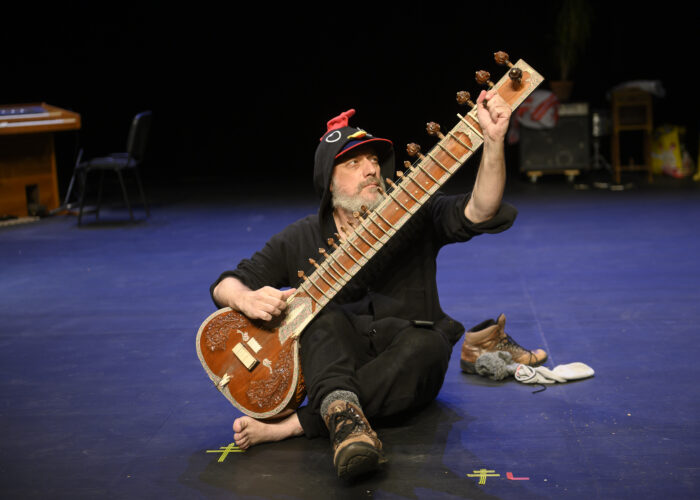
Speaking of the second part of the text. I really like where you are going with this—some might even associate it with a kind of gender-abolitionism, a move towards the destruction of gender difference. What histories and stories are you channeling in this second part of the text? Are these both intellectual and visceral reactions to the patriarchy all around us?
It is naturally connected with gender-abolitionism, in some ways, what is happening nowadays around these gender questions is inspiring and full of hope. However, as it is born in our capitalist societies, I feel that it becomes (as everything else) a market as well, and so, it becomes binary in a way (I’m not sure I am being clear…). In the text I say we are seven billion bacteria, and/or seven billion colors (meaning genders). I think it summons this. In this “feminine” imaginary world I try to evoke, the notion of gender would not have an importance.
But yes, for now, I think that the gender-abolitionism, and the openness towards non-binarism in the younger generation is a super important step along the way.
So Lonzi was writing from an Italian context in the 1960s-1980s—you are writing from a Franco-Israeli but also after many years in a New York point of view. Now, here we are about to experience this performance in Italy. Do you think these themes and this specific violence of the patriarchy carries over from culture to culture? In different ways? How?
I am pretty sure it is quite the same story all over the world, the phrases and specific details can change from place to place but we are talking here about the banality of daily patriarchy, and this is something that I believe exists everywhere.
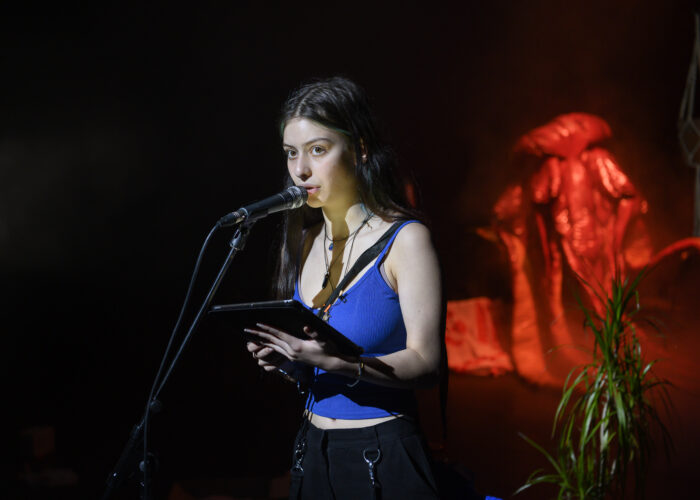
Were man and woman created at the same time? Our modern conception of each seems to be continually remade. Like when Silvia Federici writes: “As Dalla Costa put it, women’s unpaid labor in the home has been the pillar upon which the exploitation of the waged workers, “wage slavery,” has been built, and the secret of its productivity (1972:31). Thus, the power differential between women and men in capitalist society cannot be attributed to the irrelevance of housework for capitalist accumulation—an irrelevance belied by the strict rules that have governed women’s lives—nor can the survival of timeless cultural schemes. Rather, it should be interpreted as the effect of a social system of production that does not recognize the production and reproduction of the worker as a social-economic activity and a source of capital accumulation, but mystifies it instead as a natural resource or a personal service, willie profiting from the wage-less conciliation of the labor involved.”
What strikes me here is the notion that because women are “natural” caregivers it seems like this natural resource of care is endless, always renewed, and free—much like a colonialist conception of land. I hear this in your text as well, this assumption that all you, Ruth does for the family is “natural” a given, and you should always have more to give—to work, to the family, etc.
Yes, Silvia Federici’s text is an important one, we can see this mental charge women still have inside the family. Also, connected with Federici’s text, is the development of the second and third parts of the show. It talks about the huge popular knowledge we had (as societies but mostly in the hands of women) that was erased by men in the capitalist progressivist movement and was taken away and disrespected. As I say in the text (the second part) we are not witches; we’ve never been. There was just knowledge that frightened men and people in power… and that’s also the reason that, on the third part, we mix witches that were massacred and feminicide of our own time. It is the same mechanism, and it’s the same mechanism that we see in the first text of male domination.
Could you talk a bit more about the 3rd part of the show. How did you choose which women to include? And since I haven’t seen the show yet!…I wonder how they are read, with what tone are they presented?
In the third part, Saralei, our fourteen-year-old daughter, reads a list of women who were killed for being “witches” in the renaissance until our days. Of course there are thousands of women that didn’t get onto the list, otherwise it would take days to read. It is a crescendo that gets stronger with the music around it and the repetition of the list. These names come from many different lists from the witch hunt, we do not know all the “witches” names, so we chose the ones whose stories we could read.
Do you see a way forward? Is there a better time for women ahead, are we moving there or otherwise, where are we moving towards?
As I said before, I do not know…. I don’t think we have a solution, what I do see is that the younger generation is seriously questioning the system and this gives hope!



